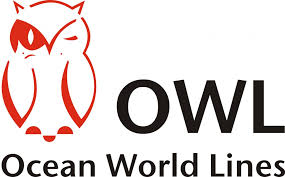
Ocean World Lines
Ocean World Lines, a Pacer International Company, is a leading global transportation company providing full-service ocean/air freight, NVOCC, customs brokerage, cargo management and supply chain visibility solutions, with 150,000+ TEUs shipped annually. Established in 1979, OWL's long-standing relationships with the top ocean carriers enable us to provide the most competitive pricing, daily sailing schedules and equipment availability.